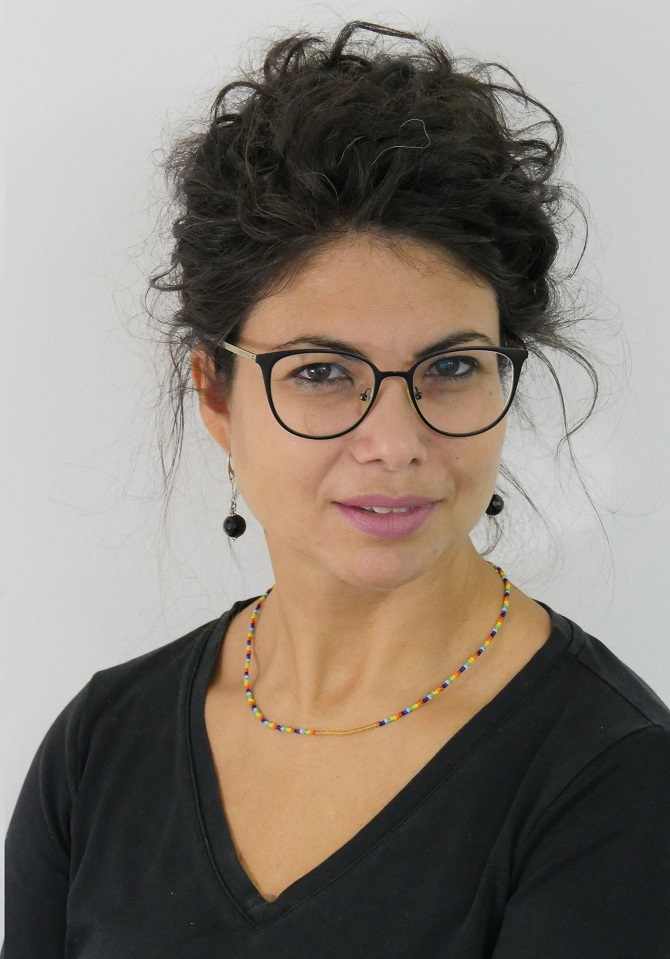2021
Project: Emotional Phenomena, Memory and Feeling of Justice during the Transitional Justice in Tunisia
Dr. Marianna Liosi
(LABA – The Free Fine Arts Academy, Rimini (Italy); Guest Lecturer MA Spatian Strategies, Weißensee Kunsthochschule, Berlin (Germany))
Marianna Liosi is an art curator and researcher. In 2020, she completed her PhD in Humanities, at the University of Ferrara, Italy. Through her thesis, titled Social Networks as Digital Archives: Videos of the Tunisian Revolution post-January 14, 2011, she aimed to offer an overview of the role played by social networks, especially YouTube and Facebook, as digital archives within the culture of connectivity, in Tunisia post-Ben Ali. Her research interests focus on the question of engaged spectatorship, social networks as digital archives, affect and emotions, and digital memory as a tool of resistance. With artist and professor Nasan Tur, she held the seminar “‘We want the break, we want to fail’ (L. Russell). Politics of self-reconfiguration in challenging times” at MA Spatial Strategies, Weißensee Kunsthochschule, Berlin (2021). She served as Lecturer of Media and Theory of Perception at LABA – The Free Fine Arts Academy in Rimini (Italy) (2019-2021). As a curator, Marianna initiated in 2016 the experimental curatorial-pedagogical laboratory Between-Broadcast Workshop (BB-W), an ongoing laboratory for discussion and creation at universities, and a YouTube channel. BB-W explores the bond between militancy through videos, empathy and digital memories as well as the activism of the spectator-user through cinematic montage. She has published essays in edited volumes, such as Image Testimonies – Witnessing in Times of Social Media, (ed. by Kerstin Schankweiler, Verena Straub, Tobias Wendl (2019), as well as articles in the journal Video Journal of Education and Pedagogy, SpringerOpen, and in the opendemocracy.net and Ibraaz.

Project Memory & Justice
The research aims to explore the feeling of justice in connection with mediated and digitally mediated memory and emotional phenomena during the transitional justice in post-January 14, 2011 Tunisia. In particular, I observe the transitional justice as a phase embedded within the revolutionary process still ongoing in the country.
The focus of my study is the community legacy that emotions and feelings build during transitional justice in Tunisia. During the process of reconciliation between citizens and the state, emotions and feelings carry and, in turn, give voice to the actualization of the citizens’ expriences. I argue that sharing publically personal remembrances and related emotions enable to transmit them beyond the individual sphere, and transform them into a collective heritage.
My research objects are the mediated visual materials, especially artworks, created in Tunisia during the revolutionary process. In particular, through the video-performance of Souad Mani and the installations of Héla Ammar, I will look into how aesthetics as well as digital and analog media used by these two women artists contribute to developing the feeling of justice in the Tunisian community. Furthermore, I will observe in what capacity this feeling influences or is, in turn, affected by memory. I anticipate that the social engagement through art can heal subjects and groups. I expect that the use of specific media, such as the digital, facilitate a sense of social and political rehabilitation.
Ultimately, my study will explore critically the notion of collectivity when it comes to reflect upon the polysemy of narratives that compose memory, and it looks at the bond between art and the public sharing of emotional phenomena within the healing process that the transitional justice process aimed to reach in Tunisia.
